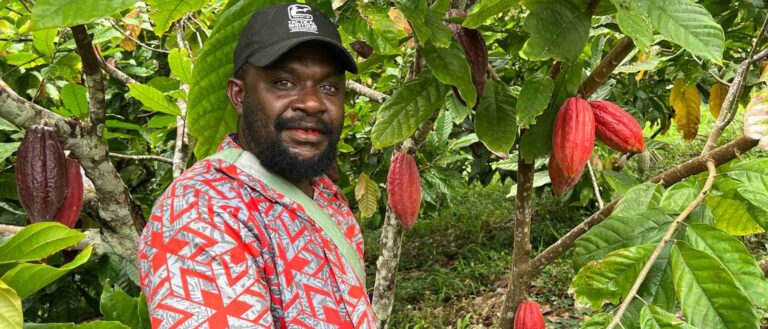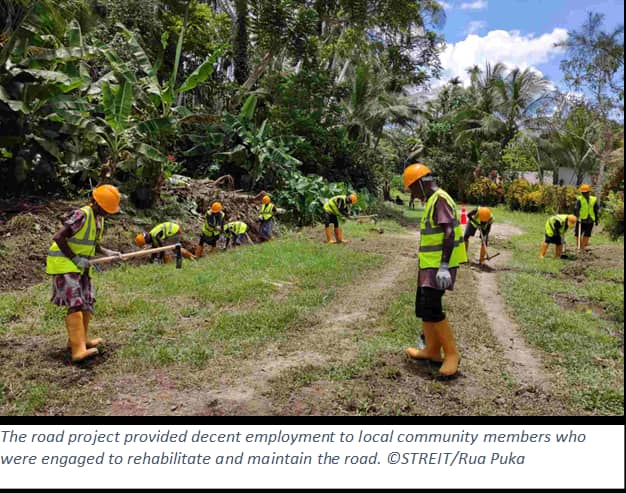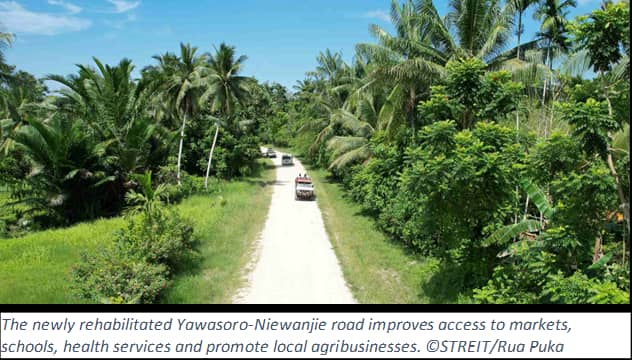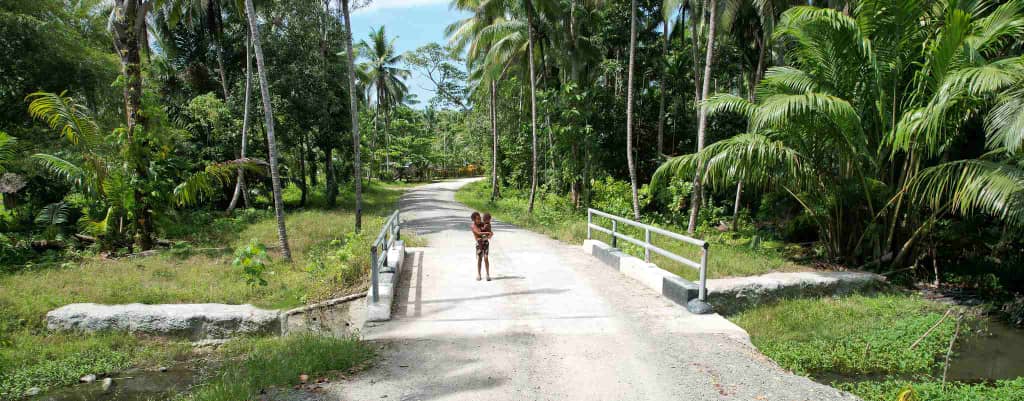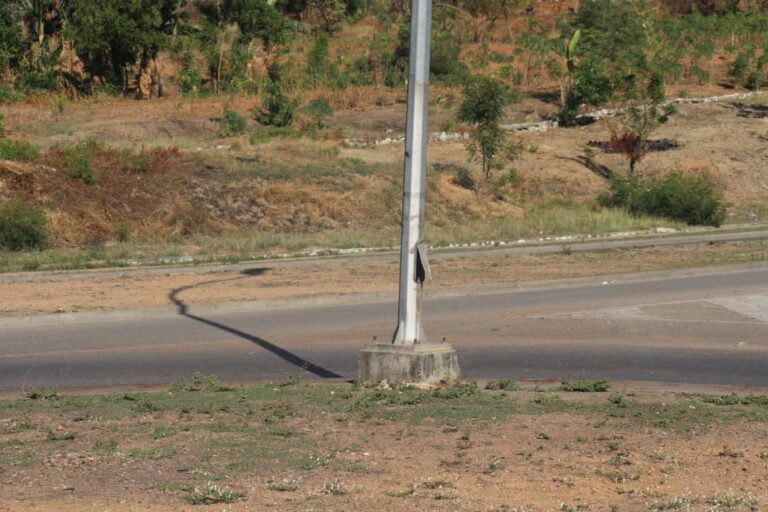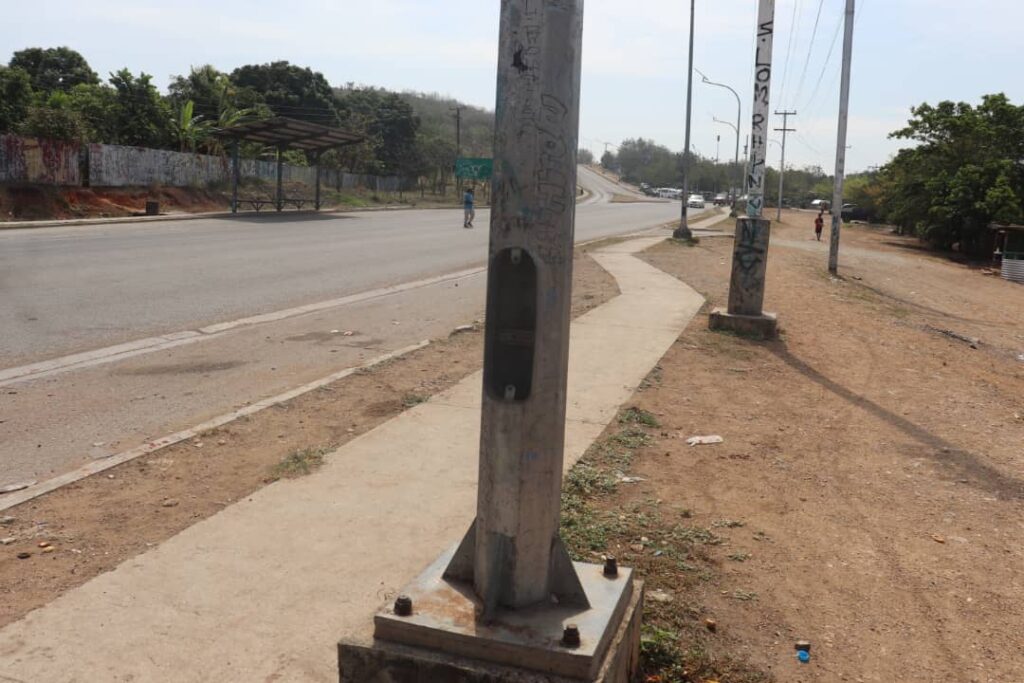For the many farmers of Wanwara Village of Turubu LLG in the East Sepik Province, Cocoa has been their main commodity.
However, the road to success for them has been troubled with challenges, particularly from the Cocoa Pod Borers (CPB).
Thanks to the assistance from the European Union Support to Rural Entrepreneurship and Trade Papua New Guinea (EU-STREIT PNG) programme has empowered these farmers to revive and reclaim their Cocoa farms and improve their livelihoods.
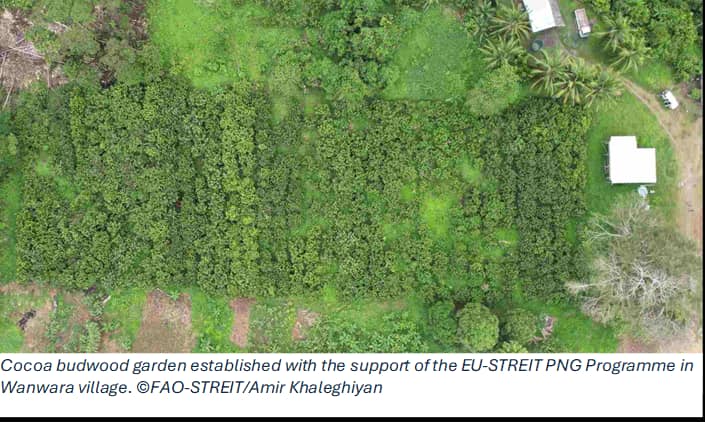
Mr. Baltazar Winjowa, a 33 year-old farmer from Wanwara Village, when sharing a trajectory hope of transformation says that he has seen his cocoa production journey evolve from struggle to success, not just for him but for his entire Community.
“I have been involved in Cocoa for over eight years now,” he explains.
Baltazar grew up helping his father, the chairman of the Juar Cocoa Cooperative Society which represents five Villages; Wanwara, Yamben, Jimeru, Mambe and Putanda.
“We had problems like Cocoa Pod Borers (CPB) affecting our cocoa for years.
“Many farmers had abondoned their blocks.” Says Baltazar.
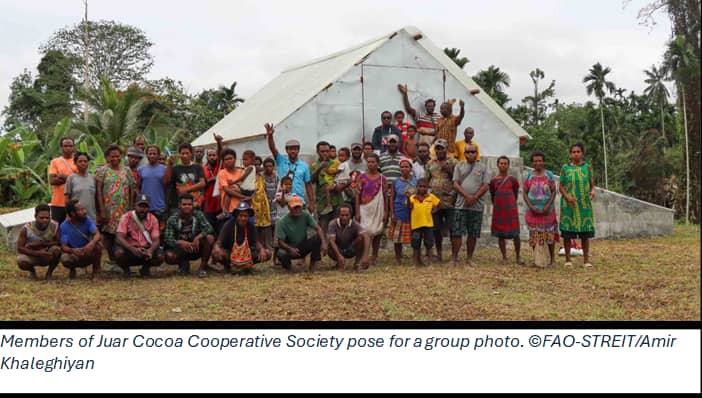
The CPB affects 80% of the Cocoa trees and the remaining 20% was not enough.
The EU-STREIT programme reached Baltazar’z Community in 2021 providing essential resources including poly bags, shed cloths, CPB – tolerant Cocoa seedlings, wheel barrows, block management tools and gumboots.
The farmers also recieved a solar combination dryer to transform the quality of their Cocoa.
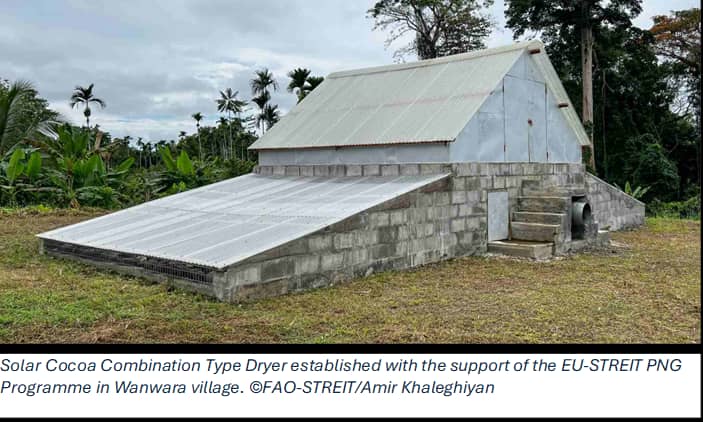
Baltazar was pleased with the initiative saying that the biggest support was the solar combination dryer helping them to produce quality dried beans.
“I want to thank EU – STREIT for the combination dryer.”
Along side the materials, the EU-STREIT PNG programme also provided the necessary critical training for the farmers including bud grafting training, proper pruning techniques aswell as the study of Cocoa fermentation and processing

